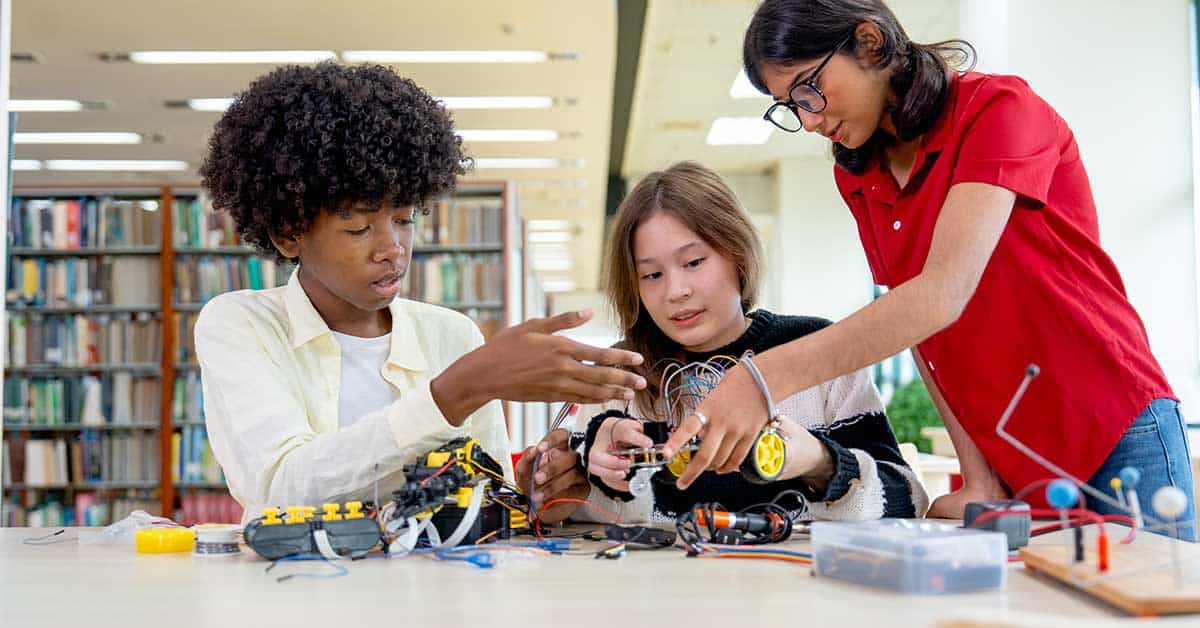Table of Contents
It’s a stark reality: eighty-eight percent (88%) of children who struggle academically and are deficient will never catch up. This alarming statistic underscores the urgency of our topic-the crucial role of early childhood education in preventing academic deficiencies. The key to reversing this trend lies in prevention through early childhood education and creating opportunities for students to learn beyond the school environment. With many parents working multiple jobs, students are often left to their devices, falling victim to video games, social media, and television. Coupled with a severe teacher shortage and increasing non-academic responsibilities, our educational system is burdened more than ever. We must ensure that students stay caught up, as it becomes increasingly more challenging even with the best interventions, strategies, and instruction.
The Urgency of Early Intervention
The High Stakes of Early Childhood Education
Early childhood education is critical for cognitive, social, and emotional development. Research indicates that children who develop strong reading and writing skills early are more likely to excel in school and beyond. We have seen numerous success stories where children who struggled in their early years, with the help of early childhood education, have overcome their challenges and achieved academic success (Garcia & Wei, 2014). This is a testament to the power of early intervention and the potential it holds for every child.
The Challenge of Academic Deficiencies
Statistics show that 88% of academically deficient children need to catch up. This stark reality underscores the importance of early intervention. Effective early childhood education can mitigate these deficiencies by providing the necessary skills and support (Goldenberg, 2008).
Beyond the Classroom: Expanding Learning Opportunities
The Role of Parents and Guardians
Parents and guardians, you play a crucial role in your children’s education. With many of you working two or more jobs, your children are often left without sufficient supervision or educational guidance at home. This situation leads many students to spend excessive time on video games, social media, and television, which can detract from their academic development. But you have the power to change this. By engaging in activities that promote learning, such as reading together and encouraging educational play, you can significantly enhance your child’s early childhood education experience (Hakuta et al., 2000).
Leveraging Community Resources
Communities must step up to provide additional learning opportunities for children. Libraries, community centers, and local organizations can offer programs and resources that support early literacy and overall academic development. These community efforts can bridge the gap left by overburdened schools and working parents (Goldenberg, 2008).
Addressing the Teacher Shortage Crisis
The Impact on Education Quality
The current teacher shortage crisis exacerbates the challenges faced by our educational system. Teachers are overwhelmed with increasing responsibilities beyond academic instruction, further straining their ability to provide quality education (Garcia & Wei, 2014).
Innovative Solutions to Support Teachers
Innovative solutions, such as utilizing technology and community volunteers, can alleviate some of the burdens on teachers. Schools can integrate assistive technologies and online resources to enhance learning and provide additional student support. Community volunteers can assist with non-academic responsibilities, allowing teachers to focus more on instruction (Hakuta et al., 2000).
The Urgent Need for Collaboration
Uniting Parents, Educators, and the Community
Parents, educators, and the community must work together to reverse the trend of academic deficiencies. It’s not about blaming each other, but about recognizing our shared responsibility and the unique contributions each of us can make. Regular communication, joint workshops, and community events can foster a cooperative environment where everyone is invested in the children’s success. Your involvement is crucial and valued in this collaborative effort (Goldenberg, 2008).
Policy Advocacy and Support
Advocating for local, state, and national policy changes is crucial to ensure adequate funding and resources for early childhood education. Support for bilingual education, increased funding for preschool programs, and initiatives prioritizing early literacy are essential steps toward a more effective educational system (Garcia & Wei, 2014).
Join us in advocating for early childhood education. Subscribe to our newsletter for updates on policy changes, educational resources, and community events. Contact us to learn how you can support early literacy in your community.
Conclusion
Early childhood education is not just a choice, it’s a necessity. By investing in preschool programs, supporting families, and leveraging community resources, we can ensure that every child has the opportunity to succeed. The time to act is now—let’s work together to prioritize early literacy for all children. The urgency of this matter cannot be overstated, and your action is needed now more than ever.
Frequently Asked Questions
What are the benefits of early childhood education for preventing academic deficiencies?
Early childhood education helps develop foundational literacy skills, social-emotional learning, and language proficiency, setting children up for long-term academic success (Garcia & Wei, 2014).
How can parents support their children’s learning at home?
They can do so by engaging in educational activities such as reading together, encouraging educational play, and utilizing interactive learning apps (Goldenberg, 2008).
Why is collaboration between parents, educators, and the community essential?
Collaboration is essential to create a supportive environment that fosters learning and addresses the challenges of academic deficiencies. By working together, parents, educators, and the community can provide comprehensive support for children’s education (Hakuta et al., 2000).
References
- Garcia, O., & Wei, L. (2014). Translanguaging: Language, bilingualism, and education. Palgrave Macmillan.
- Goldenberg, C. (2008). Teaching English Language Learners: What the research does—and does not—say. American Educator, 32(2), 8-23.
- Hakuta, K., Butler, Y. G., & Witt, D. (2000). How long does it take English learners to attain proficiency? University of California Linguistic Minority Research Institute.




